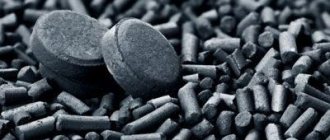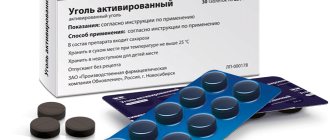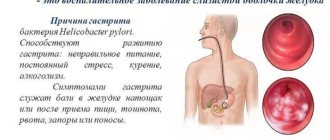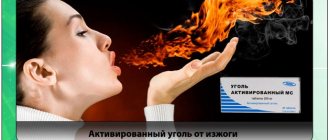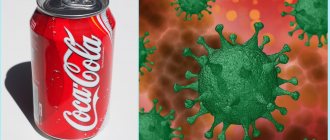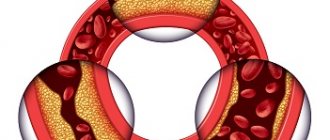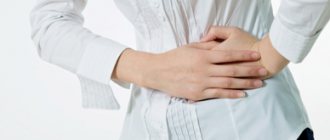Transformation in the intestines into a porous black powder increases the area of contact with the contents. It is estimated that one gram of coal mass is capable of binding 300 mg of barbiturate-based sleeping pills, 700-800 mg of morphine group drugs, 300-400 ml of alcohol residues. Therefore, the drug is actively recommended for emergency treatment of poisoning. Timely reduction of the concentration of harmful substances in the intestines allows the body to prevent effects on the brain, protect the liver and other organs.
Pharmacodynamics
It is used as an antidiarrheal agent due to its ability to sorb. It is also a detoxifier and polyvalent antidote. The high activity of the active substance allows you to quickly adsorb toxins, poisons, barbiturates, heavy metal salts, fragments of narcotic and sedatives, waste products of harmful bacteria, hydrocyanic acid and alkaloids even before they begin to be absorbed into the blood from the gastrointestinal tract.
In addition, charcoal helps remove excess production of metabolic products, including urea, bilirubin and cholesterol. A lower activity of the substance towards malathion, methanol and cyanides was noted. If it enters the gastrointestinal tract, it does not irritate the mucous membrane.
The use of coal for severe and mild poisoning
Activated carbon will help with poisoning
We encounter household poisonings from time to time. Activated carbon is an inexpensive, effective medicine that relieves intoxication and removes poisons from the body.
It is necessary to follow the correct dosage, because a small amount will not be beneficial, and an overdose harms the intestines.
The drug does not help in all cases of poisoning. It acts as an absorbent in the intestines.
If you inhale toxic fumes or get poison through the blood, then this medicine will not help. But black tablets are used for a large number of poisonings.
The drug will cope with the following poisons:
- narcotic substances;
- alcohol;
- poisons of plant origin;
- sleeping pills;
- psychotropic substances;
- hydrocyanic acid;
- poisons of animal origin;
- heavy metals.
Thanks to this affordable drug, you can cope with poisoning.
A child can take 1 tablet per 15 kg of weight
In order for the medicine to help, you should correctly calculate the number of tablets. The dosage regimen is as follows: 1 tablet per 10 kg of body weight. For children under 10 years of age, the formula changes: 1 tablet per 15 kg, if the child is older, which should be calculated according to the formula for adults.
Indications
Activated carbon is prescribed for:
- beginning symptoms of intoxication of unknown origin, like a sorbent;
- food poisoning;
- when symptoms characteristic of salmonellosis and dysentery appear;
- drug poisoning (uncontrolled use);
- drug use;
- alcohol intoxication, as a sobering agent;
- hangover syndrome, as a sorbent;
- allergic reactions of food and medicinal origin;
- chronic flatulence;
- preparatory activities for ultrasound examinations of the abdominal cavity;
- diagnosed renal failure;
- jaundice.
Activated carbon cannot be taken as a single drug. It always acts as an addition to prescribed therapy, accelerating the removal of poisons and helping the functioning of the filtering organs.
Help with alcohol poisoning
Alcohol poisoning is quite common. An effective, inexpensive remedy for improving the condition is activated carbon. Being an absorbent, it removes toxins from the body. There are different options for taking the drug. This option is considered the most effective.
Admission procedure:
- You should rinse your stomach to get rid of alcohol. If that doesn't work, go to point 2.
- Take 10 tablets, put them in a glass, stir until completely dissolved, and drink.
- To remove toxins, you should drink more clean water.
If you dissolve activated carbon in water, the medicine will work faster
You should stop at gastric lavage. If poisoning is accompanied by vomiting, it is useless to take charcoal at this stage. The stomach should be rinsed. To do this, you can use potassium permanganate or table salt.
The potassium permanganate solution should be made slightly pink. Make a saline solution from two tablespoons of salt and one liter of clean water.
The drug dissolved in water will begin to act faster. The condition is improving. If necessary, repeat the procedure 2-3 times.
Contraindications
Patients with:
- diagnosed ulcerative colitis and other ulcerative lesions of the gastrointestinal tract;
- bleeding of the abdominal organs;
- intestinal obstruction;
- intestinal atony.
In addition, patients undergoing treatment with other antitoxic drugs, the effect of which is possible after absorption of the active substance into the blood, should not take activated carbon. This is explained by the fact that charcoal blocks the absorption of drugs, interfering with treatment.
How to take activated carbon correctly?
The properties of activated carbon appear only when used correctly. The drug is able to adsorb on the surface:
- gaseous substances,
- natural and synthetic alkaloids,
- plant and bacterial toxins,
- poisons (hydrocyanic acid),
- heavy metal salts,
- hypnotics, cardiac glycosides, sulfonamides,
- some drugs,
- phenols.
A lesser blocking effect is observed in relation to acids and alkalis.
Important! The drug does not pass through the intestinal wall into the bloodstream. Transported along with the intestinal contents to the anus, does not affect peristalsis. The stool becomes black.
Indications and contraindications for taking the sorbent
Activated carbon is mistakenly called an “antidote” by some. By its nature of action, it does not exhibit opposite qualities, therefore it cannot serve as an antidote. The functions boil down to cleansing the body when the digestive system is in an unfavorable state and it is impossible to independently combat toxic substances.
Coal as a medicinal product is indicated in complex treatment:
- food poisoning (milk, meat, mushrooms, stale foods),
- when consuming poisonous alkaloids (morphine, strychnine, nicotine, high doses of coffee),
- elimination of symptoms and consequences of intestinal infections (salmonellosis, pathogenic E. coli, dysentery, typhoid fever, cholera), helminthic infestation,
- digestive disorders caused by malfunction of the liver, biliary tract, pancreas (diarrhea, bloating),
- skin allergic reactions, dermatitis,
- signs of overdose and negative properties of drugs taken orally,
- complications of chemotherapy and radiation therapy.
The sorbent is needed in preparation for diagnostic X-ray, ultrasound and colonoscopic examinations of the digestive tract to remove gases.
Gastroenterologists recommend taking the drug before a feast to eliminate the risk of overeating and the effects of alcohol. Narcologists claim that this method reduces the harmful effects of alcohol on the liver.
Activated carbon is contraindicated in patients with the following diseases:
- gastritis and peptic ulcer,
- intestinal diseases with damage to the mucous membrane (colitis, Crohn's disease, gastroenteritis),
- chronic atonic constipation,
- bleeding from the stomach and intestines.
Important! Patients who are forced to constantly take medications and vitamin-mineral complexes should take into account that when consuming charcoal, their absorption will be delayed or stop completely. Powder particles adsorb medications on their surface as foreign substances and prevent them from entering the bloodstream.
Absorption decreases with increasing coal dosage.
Directions for use and dosage
The tablets are taken orally with clean drinking water one hour before the intended meal or two hours after the meal. If the patient is forced to take other medications, then charcoal consumption is permissible 1.5-2 hours after taking another drug.
The dosage is calculated based on the patient’s weight, degree of intoxication and age:
- a single dose for adults is 8 tablets (2 g) - for mild symptoms of poisoning, 12 pcs. (3 g) tablets for obvious symptoms of food poisoning.
- a single dose for children is calculated taking into account weight: 1 g of coal per 1 kg of weight - for severe symptoms of increased gas formation or food allergies.
Both adults and children should take charcoal three times a day.
The duration of the course, as a rule, depends on the patient’s symptoms. Usually it does not exceed 3-4 days. For long-term and acute allergic reactions, treatment can last up to 14 days.
How many Activated Carbon tablets should adults and children take?
Before using the adsorbent, it is better to consult a doctor
In order to relieve poisoning and not harm your health, you should know how much to use and in what cases:
- For adults and children over 10 years of age, the following formula should be followed: one tablet per 10 kg of weight.
- For children under 10 years of age, the amount is reduced: 1 tablet per 15 kg.
- For pregnant women, her weight is taken into account; there is no need to add the weight of the fetus.
If an insufficient amount is taken, the desired effect will not be achieved. And in case of an overdose, problems with the intestines will arise.
Side effect
A side effect observed in all patients without exception is discoloration of the stool in black. Dark plaque on teeth and fillings is possible if the patient chews the tablet before swallowing it. This may also cause the saliva to have black spots.
If the recommended doses are exceeded, activated carbon can cause constipation, because as a result of its excessive intake, hard and dense feces are formed that are difficult to move through the intestines.
If taking the sorbent causes any other negative reaction, you should immediately inform your doctor.
Effect of activated carbon in case of poisoning
Activated carbon removes toxins from the body
Activated carbon is a popular absorbent; it is used to remove poisons and toxins from the body that cause poisoning.
Nowadays, charcoal is used in its production; it is heated at a temperature in special facilities.
The drug has long been used for poisoning. Previously, fruit trees and birch were burned to obtain it. The coals were treated with steam at high temperatures. The result was porous coal. It had absorbent properties. It was widely used for water and alcohol purification. It was actively used to treat humans and domestic animals.
The action of the drug is based on adsorption, absorption. It draws out all the toxic substances that cause poisoning and removes them naturally. As a result, the body is cleansed and the threat of complications has passed.
Beneficial features:
- removes poisons and toxins;
- removes allergens from the body;
- does not irritate the mucous membrane.
Produced in the form of tablets, capsules, powder, paste, granules. When the body is poisoned, the drug absorbs more than 50% of poisons and toxins.
What are the dangers of uncontrolled use of activated carbon? The doctor answers
Doctors have to deal with the consequences of overdose, improper use, and rarely with allergic manifestations.
Passion for weight loss advertising leads patients to persistent atonic constipation and partial intestinal obstruction. Doctors are categorically against this direction. Some people are confident in the complete cleansing of the body with charcoal; they take it during and after acute respiratory viral infections and influenza. There is no “cleansing” in this case. The human condition in the recovery period requires vitamins and immunomodulators. And coal retains in the intestines and prevents beneficial drugs and substances from food from being absorbed.
There are many symptomatic remedies to relieve bloating; charcoal tablets are an outdated and inconvenient remedy to use. Their use should be recommended as first aid for poisoning. The advantage is considered to be a long shelf life, suitable uncomplicated storage conditions, and inclusion in a home medicine cabinet.
If activated carbon is needed, then the optimal dosage is selected. It is not suitable for everyone due to the large number of tablets. The drug is suitable for emergency treatment of poisoning. If you have unclear vomiting or diarrhea, the better solution is to consult a doctor and find out the cause. No one has yet been able to cure the disease with coal. Overweight people need serious dietary restrictions and physical activity, and not the pursuit of advertising.
Cleaning with activated carbon is a reason to use it
Activated carbon tablets
One can argue about whether the body needs cleansing at all, or whether this is a completely useless procedure, because a person is not a warehouse with stale waste. However, there are no fewer adherents of cleansing the body in every possible way. It is worth analyzing one of the cleansing methods to weigh the pros and cons. Possible indications for cleansing the body with activated carbon:
- The desire to get rid of toxins, improve the nutrition of blood vessels. This will help get rid of headaches, digestive problems, increase flexibility and mobility of joints, and regulate high blood pressure.
- The desire to improve your appearance, get rid of acne, flaking, and shallow wrinkles. Such cleaning will help the condition of the skin and hair to change significantly for the better. These structures of the human body directly depend on the condition of the intestines. Glowing skin, shiny thick hair - a really achievable result.
- The intention to change the psychological state of the body for the better. After cleaning with activated carbon, you will feel a feeling of lightness, an increase in vitality, a desire to set goals and achieve them
A pleasant “side” effect of this cleansing for many is a small but noticeable weight loss. Often, feeling a surge of strength and realizing the wonderful results of such cleansing, a person radically reconsiders his lifestyle, diet, and eating habits.
Activated carbon tablets 250 mg No. 10
Compound
Active substance: activated carbon - 0.25 g.
Excipients: potato starch - 0.054 g, sucrose (sugar) 0.016 g.
Pharmacokinetics
Not absorbed, not broken down, excreted completely through the gastrointestinal tract within 24 hours.
Indications for use
- Exogenous and endogenous intoxications of various origins (as a detoxifying agent).
- Foodborne toxic infections, dysentery, salmonellosis (with complex treatment).
- Poisoning with drugs (psychotropic, sleeping pills, narcotics), alkaloids, salts of heavy metals and other poisons.
- Diseases of the gastrointestinal tract, accompanied by dyspepsia and flatulence.
- Food and drug allergies.
- Hyperbilirubinemia (viral hepatitis and other jaundices) and hyperazotemia (renal failure).
- To reduce gas formation in the intestines before ultrasound and x-ray examinations.
- In order to prevent chronic intoxication in hazardous industries.
Contraindications
Hypersensitivity to activated carbon, ulcerative lesions of the gastrointestinal tract (including gastric and duodenal ulcers, ulcerative colitis), bleeding from the gastrointestinal tract, simultaneous administration of antitoxic drugs, the effect of which develops after absorption (including methionine), intestinal atony; children under 3 years of age.
Carefully
Patients with diabetes and people on a low-carbohydrate diet.
Directions for use and doses
Orally, in tablets or in the form of an aqueous suspension of crushed tablets, 1-2 hours before or after meals and taking other medications. The required number of tablets is stirred in 100 ml (1/2 cup) of chilled water.
Adults are prescribed an average of 1.0-2.0 g (4-8 tablets) 3-4 times a day. The maximum single dose for adults is up to 8.0 g (16 tablets). For children, the drug is prescribed on average at the rate of 0.05 g/kg body weight 3 times a day, depending on body weight. The maximum single dose is up to 0.2 g/kg body weight.
The course of treatment for acute diseases is 3-5 days, for allergies and chronic diseases - up to 14 days. Repeated course - after 2 weeks on the recommendation of a doctor.
In case of acute poisoning, treatment is prescribed with gastric lavage using a suspension of activated carbon, then 20-30 g of the drug is given orally.
For flatulence, 1.0-2.0 g (4-8 tablets) is prescribed orally 3-4 times a day. The course of treatment is 3-7 days.
Storage conditions
In a dry place at a temperature not exceeding 25°C.
Keep out of the reach of children.
Best before date
3 years. Do not use after expiration date.
special instructions
When treating intoxications, it is necessary to create an excess of carbon in the stomach (before gastric lavage) and in the intestines (after gastric lavage). Reducing the concentration of carbon in the medium promotes desorption of the bound substance and its absorption (to prevent resorption of the released substance, repeated gastric lavage and administration of carbon are recommended). The presence of food masses in the gastrointestinal tract requires administration in high doses, since the contents of the gastrointestinal tract are sorbed by carbon and its activity decreases. If poisoning is caused by substances involved in the enterohepatic circulation (cardiac glycosides, indomethacin, morphine and other opiates), charcoal must be used for several days. When using the drug for more than 10-14 days, prophylactic administration of vitamins and calcium supplements is necessary. Patients with diabetes mellitus and those on a low-carbohydrate diet should take into account that one tablet of the drug contains about 0.07 g of carbohydrates (0.006 XE).
It is recommended to store in a dry place, away from substances that release gases or vapors into the atmosphere. Storage in air (especially humid) reduces sorption capacity.
Description
Enterosorbent.
Dosage form
Tablets are black, flat-cylindrical, chamfered, with or without a score on one side, with or without an “R” marking on the other.
Use in children
Contraindicated for use in children under 3 years of age.
Pharmacodynamics
Adsorbent. It has an enterosorbing, detoxifying and antidiarrheal effect. Belongs to the group of polyvalent physicochemical antidotes and has high surface activity. Adsorbs poisons and toxins from the gastrointestinal tract before they are absorbed, incl. alkaloids, glycosides, barbiturates and other hypnotics and narcotics, salts of heavy metals, toxins of bacterial, plant, animal origin, derivatives of phenol, hydrocyanic acid, sulfonamides, gases. It also adsorbs an excess of certain metabolic products - bilirubin, urea, cholesterol, endogenous metabolites responsible for the development of endogenous toxicosis. Weakly adsorbs acids and alkalis (including iron salts, cyanides, methanol, ethylene glycol). Does not irritate the gastrointestinal mucosa.
Side effects
Dyspepsia, constipation or diarrhea, dark coloration of stool. With long-term use (more than 14 days), the absorption of vitamins, calcium and other nutrients from the gastrointestinal tract may be reduced.
Use during pregnancy and breastfeeding
The drug can be used during pregnancy and breastfeeding if the expected benefit to the mother outweighs the potential risk to the fetus and child. You should consult your doctor.
Interaction
Activated carbon has adsorbent properties and, when taken simultaneously with other drugs, can significantly reduce their absorption from the gastrointestinal tract, which leads to a decrease in the effectiveness of other drugs.
Overdose
To date, no cases of overdose have been registered.
Impact on the ability to drive vehicles and operate machinery
The use of the drug does not affect the ability to perform potentially hazardous activities that require increased concentration of attention and speed of psychomotor reactions (driving vehicles, working with moving mechanisms, working as a dispatcher and operator).
When is it prescribed?
Activated carbon has a wide spectrum of action.
It is prescribed for:
- poisoning with stale food;
- problems with digesting food (bloating, diarrhea, etc.);
- overdose and side effects of medications;
- gastrointestinal infections (salmonella, dysentery, etc.);
- acute and chronic pancreatitis, cholecystitis.
It is also prescribed in preparation for various studies of the gastrointestinal tract (X-ray, endoscopy, etc.).
The drug does not enter the bloodstream, but immediately dissolves in the intestines. For this reason, it can be taken even by pregnant women and nursing mothers. Pregnant women in the early stages often experience toxicosis, the symptoms of which are nausea and vomiting. However, expectant mothers can take it only after consulting a doctor.
